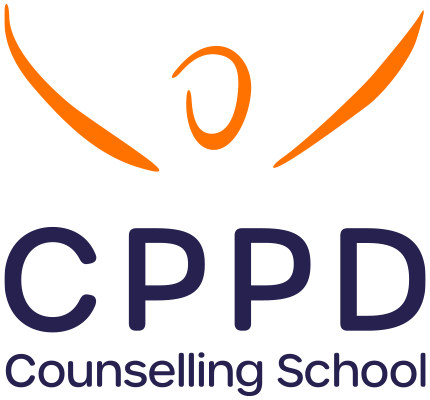Certificate in Humanistic Integrative Counselling.
The Certificate in Humanistic Integrative Counselling provides a learning environment in which trainees can explore and experience the world of counselling. It provides an overview of the Humanistic Integrative approach to counselling and opportunities for practical experience and training.
of knowledge and experience that spans over two decades, we’ve now expanded our training into new territories across the globe.
25+ years
a year are now taking advantage of our courses, and the number continues to grow, with many opting for a complete career change.
180+ students
700+ graduates
have now left our courses as fully trained qualified therapists, going on to forge rewarding and successful careers.
Explore the world of counselling.
The Certificate in Humanistic Integrative Counselling provides a learning environment in which trainees can explore and experience the world of counselling. It provides an overview of the Humanistic Integrative approach to counselling and opportunities for practical experience and training.
It focuses on the development of effective listening, relationship building and the interpersonal skills necessary to attend sensitively to the needs of others, whilst establishing and maintaining clear professional and personal boundaries. Self-awareness is a vital part of any counselling training, and the course aims to facilitate this through theoretical input, skills training and reflective group process.
Structure
The Certificate is a one-year part-time course, spanning three terms. It commences with an introductory weekend, an ending weekend and each term consists of ten weekly evening seminars.
-
Total course fee: £2,490
Payment options:
Initial deposit of £500 required on contract
Balance of £2,545 payable upfront.
Total payable: £3,045
OR
Initial deposit of £500 required on contract
January Intensive
6 monthly payments of £475Spring
12 monthly payments of £237.50Total payable: £3,350*
*This increased fee covers administration costs and any late instalment will incur a 5% charge.
Course programme.
Counselling Theory
Students will be introduced to the main concepts and principles of basic counselling skills including active listening, reflection and paraphrasing. They will be introduced to the Humanistic Integrative approach based upon the Five Relationship Model (Petruska Clarkson). Students will examine Humanistic theories from the Person-Centred approach, Transactional Analysis and Gestalt, Transpersonal Psychology and Psychodynamic theory in relation to concepts of Transference and Counter-transference. Students will be introduced to the main concepts and principles of counselling, developing key skills including active listening, reflection and paraphrasing.
The course will look at specific issues such as:
Transcultural awareness
Sexuality
Childhood abuse
Alcohol and substance misuse
The psychology of shame
Attachment Theory
Bereavement and loss
Counselling Practice
This intensive learning process includes the practice of enhanced listening skills, observation and verbal and non-verbal communication. Through the experiential use of counselling practice in pairs and triads, trainees will gain an ability to develop the building and maintaining of a therapeutic relationship. This will include how to negotiate contracts with clients in clinical practice, establishing and maintaining boundaries, and giving and receiving effective feedback. Experiential work and practicedevelops theoretical understanding and application
Group Process
Group process is entirely experiential and the focus is on the personal and emotional development of trainees. The experience of the large group process develops trainees’ capacity for self-reflection and awareness. Students develop the ability to demonstrate ownership of their own words andfeelings, and to differentiate those of others. This ability is fundamental to our work as counsellors.
Assessment
Assessment is continuous throughout the year and includes elements of self, peer and tutor evaluation. Students are required to successfully complete three written assignments throughout the year (2,000-2,500 words each).
Students are expected to attend every session and a minimum attendance of 80% is required for the Certificate to be issued.
Entry Requirements
Training is open to those with a first degree or relevant previous training, for example in health care or social work, and those without formal qualification but equivalent suitable life experience. In addition, applicants must demonstrate personal maturity and the ability to cope with the emotional, intellectual and time demands of the course.
For all online sessions you will need:
• A good internet connection
• Suitable technology/devices
• The technical ability to work online
• A private space in which to attend.
Contact time
120 hours
Course options.
Certificate in HIC
Spring
Course start date
Location
Spring 2026
Wednesday
CPPD
The Campsbourne
Course hours
Course dates
Wednesdays:
18:00 - 21:30
Opening and Final Weekend:
10:00 - 16:00 (Sat & Sun)
Certificate in HIC
Autumn
Course start date
Location
Autumn 2025
Thursday
Online
Course hours
Course dates
Weekends:
10:00 - 16:00 (Sat & Sun)
Thursdays:
10:00 - 13:30
Certificate in HIC
Autumn
Course start date
Location
Autumn 2025
Tuesday
CPPD
The Campsbourne
Course hours
Course dates
Weekends:
10:00 - 16:00 (Sat & Sun)
Tuesdays:
18:00 - 21:30
Certificate in HIC
January Intensive
Course start date
Location
January 2027
Tuesday
CPPD
The Campsbourne
Course hours
Course dates
Tuesdays:
09:30 - 17:30
Weekends:
10:00 - 16:00 (Sat & Sun)
View dates +
Admissions policy and procedure guide
We’ve developed our guide to help inform and support applicants through the course admission process. Click to download now!
Our policies
Equality, diversity
& inclusion policy
CPPD is committed to promoting equality and diversity. We aim to provide an inclusive and supportive environment for our students and staff where people are treated equally, everyone is treated with dignity and respect, and where we operate a zero-tolerance policy towards bullying and harassment. Simply click the button below to download a copy of the full policy.
Plagiarism and the
use of AI policy
CPPD is committed to helping our students navigate the pitfalls and dangers of plagiarism and the use of AI during their courses. Our policy is designed to clarify both, highlight potential risks and to offer support in the event of alleged breaches. Simply click the button below to download a copy of the full policy.





